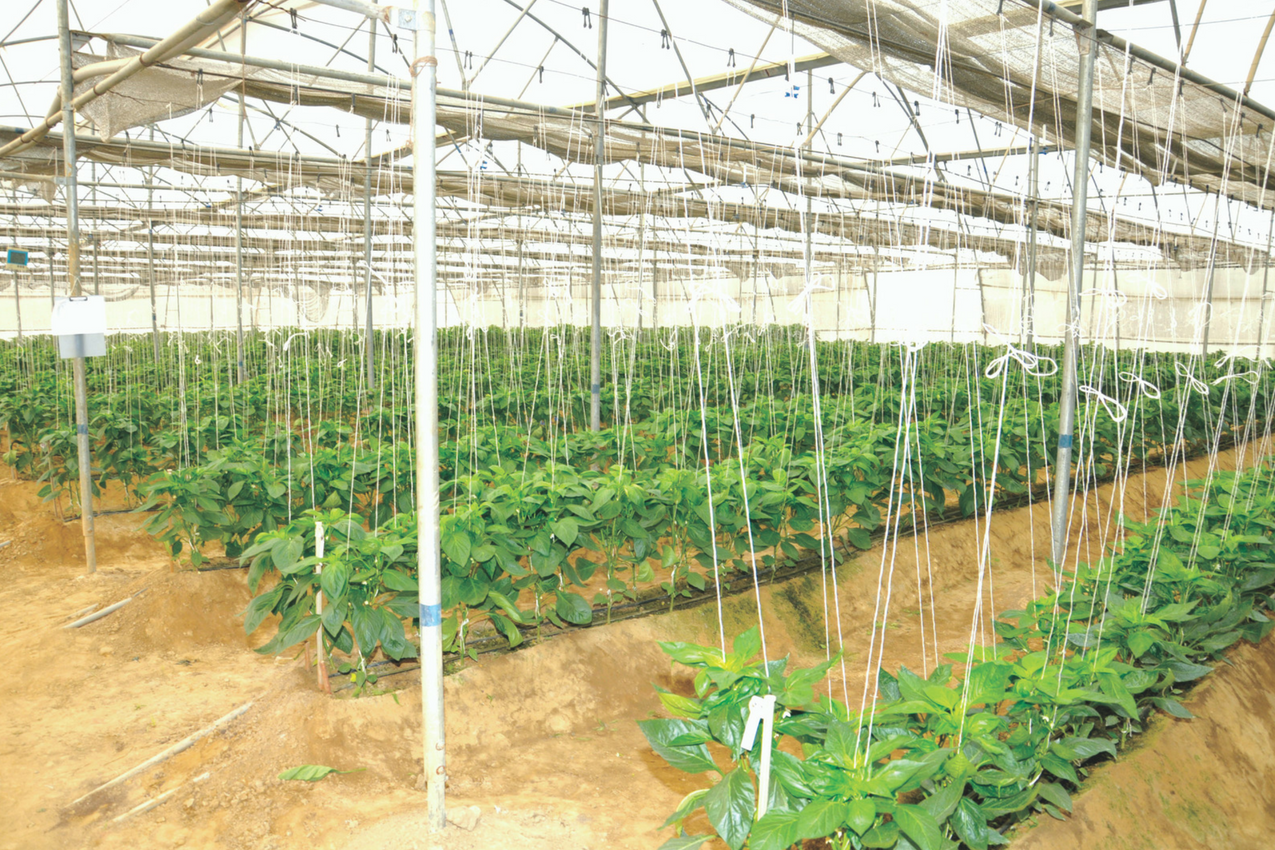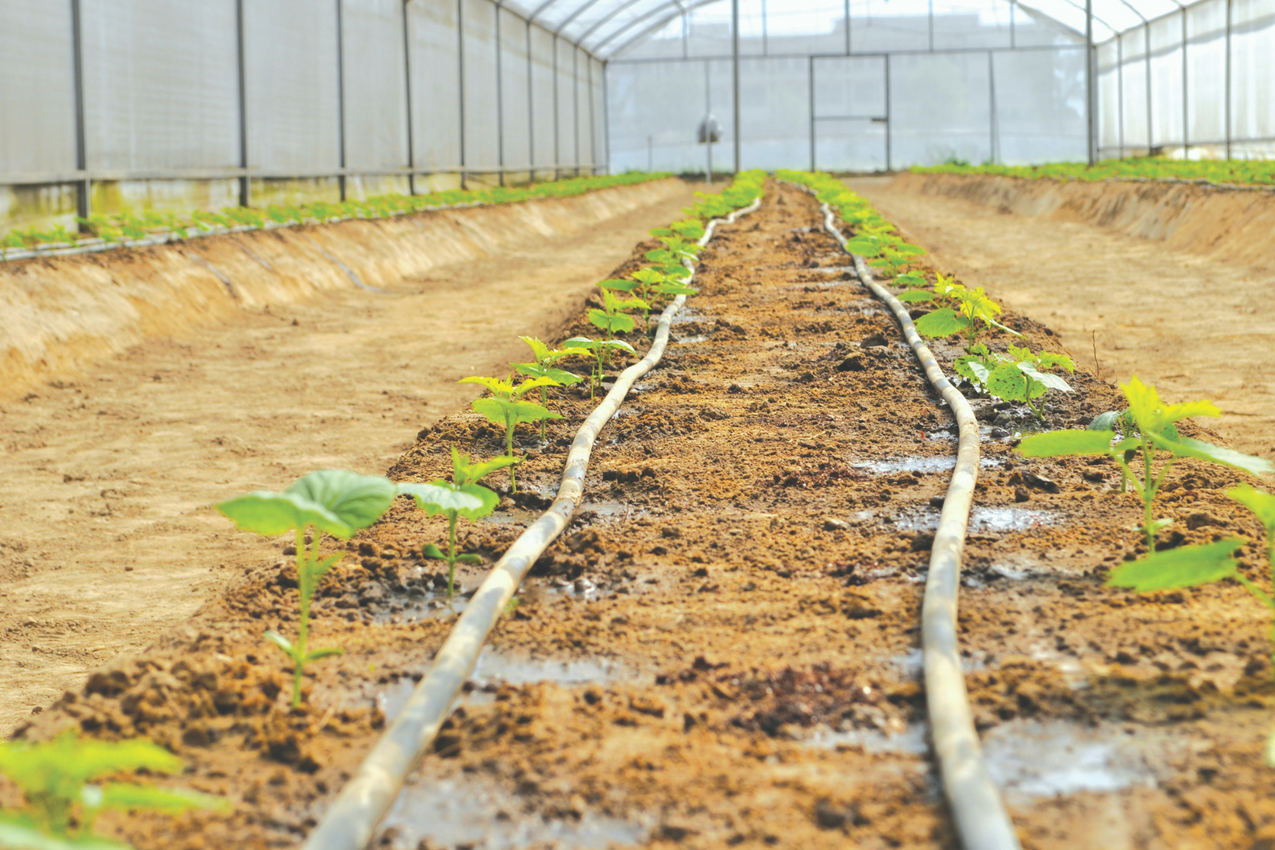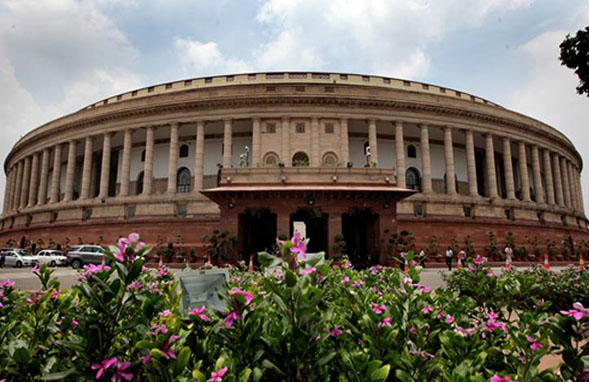This article was published in D&B’s special edition: 70th Anniversary of Israel’s Independence
Israel’s agricultural breakthrough is the world’s most renowned success story: a country with only 20% arable land and vast territory covered with desert that barely gets a drop of rain. Despite unfavorable climatic conditions and a similar topography, 95% of the country’s food requirement is met by Israel’s own agricultural growth. Israel has tripled its cultivable land and multiplied production by 16 times since 1948. Despite a small workforce (only 1.2%) employed in real agricultural work, Israel’s agricultural exports amounted to 18% of agricultural production in 2014 which included $2 billion worth of fruits and vegetables.
Meanwhile, India is the largest food producer globally. India’s agricultural sector, with allied sectors like fisheries and horticulture, employs 50% of the workforce. Here agriculture is not only the broadest sector demographically but also contributed approximately 17-18% to the Indian GDP in 2017. In 2013, India became the seventh largest agricultural exporter worldwide.
With Israel being world leader in agricultural technology and India having the largest agricultural sector, both countries have found a strong mutual ground to sow seeds for symbiotic growth.
Indo-Israel Agricultural Agreement
In 2006, India signed an agreement with Israel for agricultural cooperation with the help of MIDH (Mission for Integrated Development of Horticulture) and MASHAV, Israel’s agency for International Development Cooperation, which came to be known as the Indo–Israel Agricultural Project (IIAP).
The first stage of the Indo–Israeli agricultural cooperation started in 2008 following the signing of a three-year Action Plan based on a government-to-government agreement. The plan was later on extended to include the 2012- 2015 period.
The main objectives of the project were to increase productivity, crop diversity, and resource-use efficiency. These were to be implemented through two paths of action: by Israel sharing its experience and knowledge of agricultural practices, and by running professional training sessions through MASHAV both in Israel and India.
“Our goal is to help the Indian farmer by exposing them to new technologies tailored to their local needs,” said Dan Alluf, counsellor of science and agriculture at MASHAV, Delhi.
MASHAV’s programs focus on providing technical assistance and are closely involved in the implementation of the programs at ground level. Since its establishment, MASHAV has promoted centrality of the individual, human resource enrichment, and institutional capacity-building for the development process—an approach which has attained global consensus.
These programs will help India in areas where Israel has a comparative advantage, including agriculture and rural development, dry lands development, water resources management, microenterprise development, entrepreneurship, innovation and development, community development, medicine and public health, and empowerment of women and their education.
To achieve the goals stated under the Cooperation Agreement, a decision was made to establish “Agricultural Centers of Excellence,” funded by both the Federal Government National Rural Health Mission (NHM) and by individual state governments which are also responsible for allocating land and professional manpower.
Agricultural Centers of Excellence
Up till now, 20 centers of excellence have been opened all over India in different states. A new plan of action was prepared after Prime Minster Narendra Modi’s visit to Israel in July 2017, to be implemented between the years 2018-2020 that anticipates joint development of new crop varieties and sharing of post-harvest technologies.
The goals for centers of excellence are to provide the know-how and new agricultural technology such as protected cultivation and drip irrigation, which shall be demonstrated at the centers with an aim to convince small and large farm holders to adopt these practices.
The basic concept of the centers is based on a triangular format: Applied Research, SMS (Subject Matter Specialist) Field Extension Officer, and the Progressive Farmer.
Implementation & Success Stories
Haryana
The first COE established in Haryana is lauding its success now. The Gharaunda Center of Excellence hosts a plant nursery which produces lakhs of vegetable plug seedlings annually, utilizing plug-seedling technology (young plants grown in small, individual cells, ready to be transplanted into containers or a field). The COE also demonstrated protected cultivation, starting with simple solutions (such as tunnels, walking tunnels, and up to advanced solutions such as net-houses, and poly-houses), open field cultivation which includes mulching and the use of other methods of plasticulture, and computerized irrigation and fertigation.
Haryana was able to increase the harvest period of various vegetables from three-nine months and introduce the state to new crops such as cherry tomato and colored capsicum, all contributing to the income of farmers, according to Dr. Satyender Yadav, Head of Vegetable Cluster and Center of Excellence of Karnal.
In addition to the increase in crops, there was a reduction of 65% in water use, as well as a noticeable decrease in the use of pesticides and fertilizers.
Maharashtra
Similarly, in the Dapoli Center of Excellence, Maharashtra, they were able to successfully demonstrate rejuvenation in farmers’ orchards without losing even one tree in the process. The result is a significant crop increase while simultaneously improving fruit quality: in just two years, the treated trees produced fruit that were heavier. In addition, saline water and calcareous soils, and tolerant rootstocks were especially brought from Israel to allow growing mangoes even in areas where there is a salinity problem.
Israel’s contribution to the Indian agricultural sector may just be the revolution that can enhance the lives of Indian farmers and help India make the best of its resources.
The future plans for Indo–Israel partnership include establishment of an animal husbandry project and the establishment of bee keeping centers in Haryana, as well as the development of post-harvest centers for dates in Gujarat and Rajasthan.










